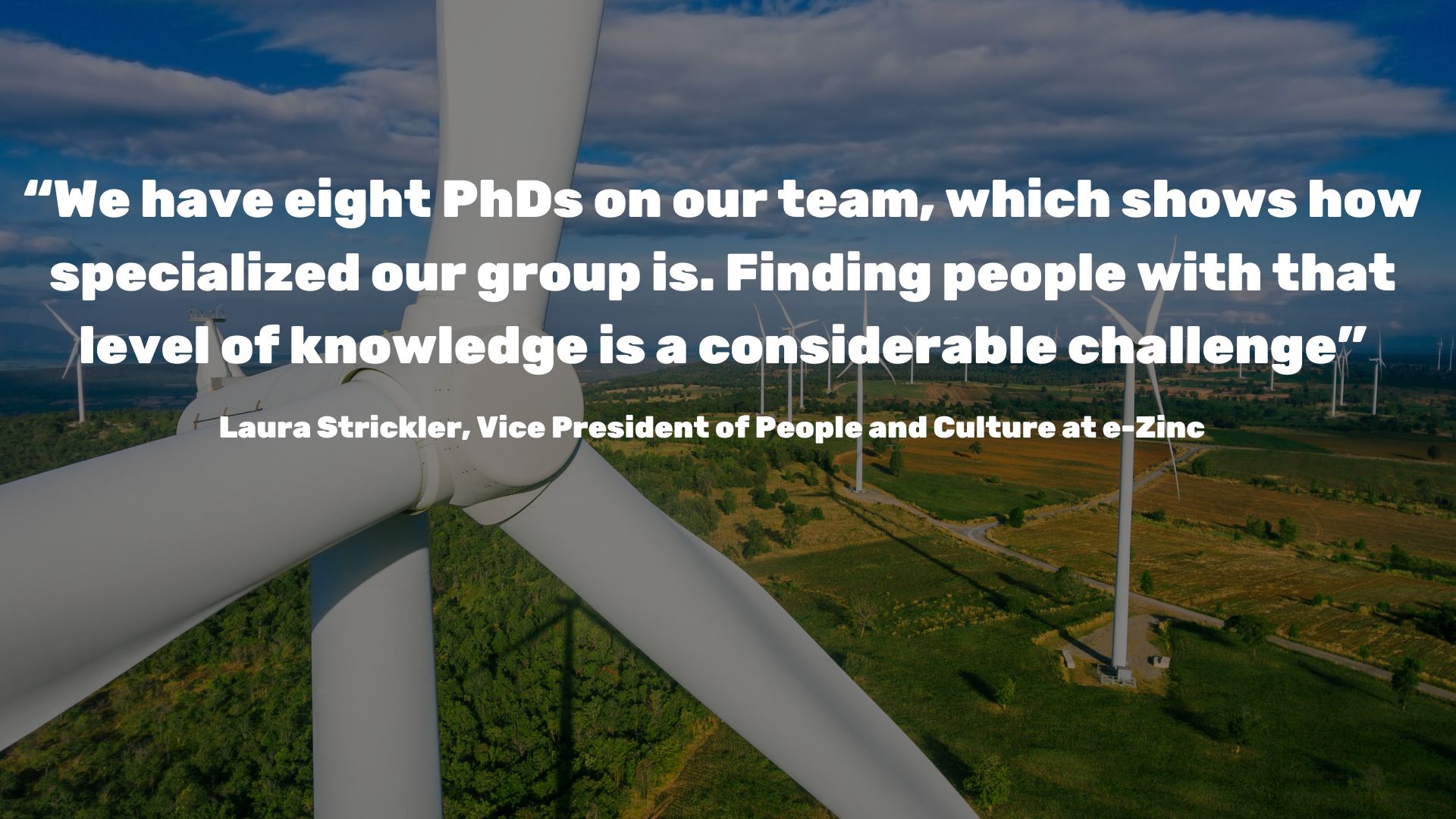Canada faces a significant challenge in its transition to clean energy: the lack of skilled workers in the clean energy sector. This sector, crucial for meeting the country’s climate goals, requires a workforce with particular skills. The situation is particularly severe in emerging industries like long-duration battery manufacturing, where companies like e-Zinc, based in Mississauga, struggle to attract highly specialized talent.
Immigrating to Canada can be complex. With Become A Canadian, we help you understand the procedures and gather the correct documentation to facilitate a successful application.
According to Laura Strickler, Vice President of People and Culture at e-Zinc, finding personnel with the necessary experience is one of the company’s main obstacles. “We have eight PhDs on our team, which shows how specialized our group is. Finding people with that level of knowledge is a considerable challenge,” says Strickler. The talent shortage not only affects companies like e-Zinc, but it is also a concern for others in the clean energy industry.
The clean energy sector is crucial, as Canada has committed to decarbonizing its electricity grid by 2035. Thousands of professionals with specialized skills in renewable energy, batteries, and clean technologies will be needed to meet this ambitious goal. However, there is a significant gap between the supply and demand for this type of talent. According to Clean Energy Canada, only the province of British Columbia has received an excellent rating in workforce development for this sector, while other provinces still have work to do.

In addition to the shortage of highly trained professionals, the sector also faces a lack of workers in skilled trades, which further complicates the situation. To address these challenges, experts like Kevin Nilsen, President of ECO Canada, suggest that it is essential to train workers from adjacent sectors in addition to attracting new talent. This could include training and retraining programs for those already possess transferable skills, such as engineers or technicians from other fields.
With the aging Canadian population, the shortage of workers in the clean energy industry could worsen in the coming years. Therefore, it is crucial that the Canadian government, businesses, and educational institutions invest in training and development programs to ensure a workforce capable of driving the energy transition. Suppose appropriate policies are implemented and necessary skills are fostered. In that case, Canada will be able to seize the economic opportunities offered by the transition to a low-carbon economy and generate thousands of new jobs in the clean energy sector.
Don’t let bureaucracy hold you back. Become A Canadian provides expert advice in submitting your immigration documents, ensuring everything is prepared properly for a smooth process.


